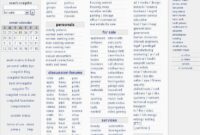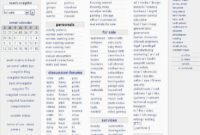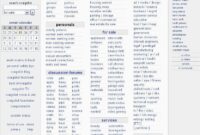Used 250 Pickup Trucks For Sale: Your Ultimate Guide to Finding the Perfect Workhorse pickup.truckstrend.com
The open road, a heavy trailer, a job site full of materials – for many, these scenarios call for one vehicle: a heavy-duty pickup truck. Specifically, the "250" class, also known as 3/4-ton trucks, represents the sweet spot for serious capability without the commercial registration requirements often associated with 1-ton (350/3500) models. If you’re in the market for a dependable, powerful, and value-packed vehicle, looking into used 250 pickup trucks for sale is an incredibly smart move.
This comprehensive guide will walk you through everything you need to know about navigating the market for these formidable machines, ensuring you make an informed decision that meets your needs and budget.
Used 250 Pickup Trucks For Sale: Your Ultimate Guide to Finding the Perfect Workhorse
The Allure of the Used 250 Pickup Truck
A 250-series pickup truck, such as a Ford F-250, Ram 2500, or Chevrolet Silverado 2500HD/GMC Sierra 2500HD, is built for demanding tasks. They offer significantly higher towing and payload capacities than their half-ton (150/1500) counterparts, featuring stronger frames, beefier suspension components, and often more powerful engine options, including robust diesel engines.
Opting for a used 250 pickup truck presents several compelling advantages:
- Significant Cost Savings: New heavy-duty trucks are expensive. Buying used allows you to get a highly capable vehicle for a fraction of the original price, avoiding the steepest part of the depreciation curve.
- Proven Reliability: Many 250-series trucks are renowned for their longevity and durability. A well-maintained used model can still provide hundreds of thousands of miles of service.
- Access to Premium Features: Your budget for a used truck often stretches further, allowing you to afford higher trim levels, more powerful engine options (like a diesel), or desirable features that would be out of reach in a new vehicle.
- Immediate Availability: No waiting for factory orders; used trucks are available for immediate purchase.
- Variety: The used market offers a vast selection of model years, engine types, cab configurations, and trim levels, giving you more options to find the exact truck you need.
Key Considerations When Shopping for a Used 250 Pickup
Before diving into listings, take some time to define your needs. This clarity will narrow your search and prevent costly mistakes.
1. Intended Use and Capability Requirements
- What will you primarily use the truck for? Towing a large RV or horse trailer? Hauling heavy equipment or materials? Daily commuting? Off-road adventures?
- What are your specific towing and payload needs? Check the Gross Vehicle Weight Rating (GVWR), Gross Combined Vehicle Weight Rating (GCVWR), and specific towing/payload capacities. Never exceed these ratings.
- Will you need 4-wheel drive (4WD)? Essential for off-road conditions, snowy climates, or launching boats on slippery ramps. 2-wheel drive (2WD) models are typically cheaper, lighter, and offer slightly better fuel economy.
2. Engine Type: Gas vs. Diesel
This is perhaps the most significant decision for a 250-series truck.
- Gasoline Engines:
- Pros: Lower purchase price, cheaper maintenance, simpler emissions systems (for newer models), quicker warm-up in cold weather.
- Cons: Generally lower torque, higher fuel consumption when working hard, less ideal for extremely heavy, sustained towing.
- Diesel Engines (Power Stroke, Cummins, Duramax):
- Pros: Immense torque for effortless towing and hauling, better fuel economy when under load, legendary longevity (if well-maintained).
- Cons: Higher purchase price, more expensive maintenance (oil changes, fuel filters), complex emissions systems (DEF, DPF, EGR) that can be costly to repair on newer models, slower warm-up.
- Consideration: For consistent heavy towing or hauling, a diesel is often the superior choice despite the higher upfront and maintenance costs.
3. Cab Style and Bed Length
- Regular Cab: Two doors, single row of seats. Best for pure work, most affordable, shortest wheelbase for maneuverability.
- Extended Cab (SuperCab/Quad Cab): Two full-size front doors and two smaller rear suicide or hinged doors. Limited rear seat space, good for occasional passengers or secure storage.
- Crew Cab (SuperCrew/Mega Cab): Four full-size doors, spacious rear seating. Ideal for families, crews, or those needing maximum passenger comfort.
- Bed Lengths: Typically 6.5-foot (short box) or 8-foot (long box). Long boxes are necessary for certain types of cargo or fifth-wheel hitches. Short boxes offer better maneuverability.
4. Mileage, Age, and Condition
- Mileage: Don’t be afraid of high mileage on a well-maintained 250-series truck, especially diesels. 200,000+ miles can be common. Focus more on maintenance history than just the odometer reading.
- Age: Newer trucks will have more advanced features, better safety, and potentially more complex electronics. Older trucks are simpler and often cheaper to maintain.
- Condition: Look for signs of abuse, neglect, or heavy rust. The frame, suspension, and driveline are critical.
5. Budget and Total Cost of Ownership
Factor in not just the purchase price, but also:
- Insurance: Heavy-duty trucks can be more expensive to insure.
- Fuel Costs: Especially for gasoline models or diesels doing a lot of city driving.
- Maintenance: Tires, brakes, fluid changes, and potential repairs can be more costly for heavy-duty components. Diesels typically have higher maintenance costs.
- Registration and Taxes: Vary by state.
Where to Find Your Used 250 Pickup
- Franchise Dealerships: Often offer certified pre-owned (CPO) options with warranties, but typically at a higher price.
- Independent Used Car Dealerships: Wider variety, more competitive pricing, but inspection is paramount.
- Online Marketplaces: AutoTrader, CarGurus, Cars.com, eBay Motors, Craigslist, Facebook Marketplace. Excellent for variety and directly connecting with sellers. Be cautious of scams.
- Private Sellers: Often the best deals, but require more diligence on your part regarding inspection and paperwork.
- Auctions: Government, fleet, and public auctions can offer low prices, but vehicles are usually sold "as-is" with little to no prior inspection. High risk, high reward.
The Crucial Inspection Process
Never buy a used 250 truck without a thorough inspection.
- Vehicle History Report: Get a CarFax or AutoCheck report. This reveals accident history, title issues (salvage, flood, etc.), odometer discrepancies, and service records.
- Exterior Inspection:
- Frame: Look for rust, bends, or cracks, especially near suspension mounts. This is paramount.
- Body Panels: Check for rust, dents, mismatched paint (indicating prior accident repair), and proper panel alignment.
- Tires: Inspect tread depth and even wear. Uneven wear can signal alignment or suspension issues.
- Lights, Glass, Mirrors: Ensure all are functional and intact.
- Engine Bay:
- Leaks: Look for oil, coolant, or transmission fluid leaks.
- Fluids: Check levels and condition (clear, not sludgy or burnt).
- Belts and Hoses: Look for cracks, fraying, or bulges.
- Battery: Check for corrosion.
- Smells: Burnt oil, coolant, or electrical smells are red flags.
- Interior Inspection:
- Dashboard Lights: Ensure no warning lights (Check Engine, ABS, Airbag) are illuminated. If they are, get them diagnosed.
- Electronics: Test all power windows, locks, radio, navigation, HVAC, etc.
- Seats and Upholstery: Check for tears, stains, and excessive wear.
- Pedals: Excessive wear on brake or accelerator pedals might indicate high mileage despite a low odometer reading.
- Underneath the Truck:
- Suspension: Look for worn bushings, leaking shocks, or damaged springs.
- Driveline: Check driveshafts for dents, U-joints for play, and differentials for leaks.
- Exhaust: Look for rust or holes.
- Brakes: Inspect rotors for deep grooves and pads for wear.
- Test Drive:
- Engine: Listen for unusual noises (knocks, ticks, excessive smoke). Check for smooth acceleration.
- Transmission: Should shift smoothly without hesitation, slipping, or harshness. Test all gears, including reverse.
- Brakes: Should stop the truck smoothly and without pulling.
- Steering: Should be tight and responsive, without excessive play or wandering.
- Suspension: Drive over bumps to check for excessive bouncing or clunking.
- HVAC: Ensure AC blows cold and heat blows hot.
Crucial Tip: Pre-Purchase Inspection (PPI)
After your initial inspection, if you’re serious about a truck, invest in a PPI by an independent, trusted mechanic who specializes in heavy-duty trucks. They have the tools and expertise to spot issues you might miss, potentially saving you thousands in future repairs.
Common Issues to Watch Out For
While 250-series trucks are robust, certain issues can arise:
- Rust: Especially prevalent in northern climates, check rocker panels, cab corners, and critically, the frame.
- Transmission Problems: Heavy towing can stress transmissions. Look for delayed shifts, slipping, or unusual noises.
- Diesel-Specific Issues:
- Injectors: Can fail, leading to rough idle, smoke, or reduced power.
- Turbochargers: Listen for whining or lack of boost.
- Emissions Systems (DPF, EGR, DEF): These components on newer diesels can be expensive to repair or replace if they fail.
- Suspension Wear: Ball joints, tie rods, and shocks can wear out faster under heavy loads.
- Electrical Gremlins: Modern trucks have complex wiring. Test everything.
Table: Estimated Price Ranges for Popular Used 250 Pickup Trucks
Please note: These are highly generalized estimates and actual prices vary wildly based on year, mileage, condition, trim level, engine type (gas/diesel), region, and market demand. Always verify current market values.
| Make/Model | Typical Model Years | Estimated Price Range (Lower Trim/Higher Mileage) | Estimated Price Range (Higher Trim/Lower Mileage) | Key Features/Notes |
|---|---|---|---|---|
| Ford F-250 Super Duty | 2008-2016 | $15,000 – $30,000 | $25,000 – $45,000 | Power Stroke diesel is highly sought after. |
| 2017-2022 | $30,000 – $50,000 | $45,000 – $70,000+ | Significant redesign in 2017. More tech. | |
| Ram 2500 | 2008-2018 | $14,000 – $28,000 | $22,000 – $42,000 | Cummins diesel is a strong point. Coil spring rear susp. |
| 2019-2022 | $35,000 – $55,000 | $50,000 – $75,000+ | Redesigned interior, massive screens. | |
| Chevrolet Silverado 2500HD | 2007-2014 | $13,000 – $27,000 | $20,000 – $40,000 | Duramax diesel with Allison transmission is a robust combo. |
| GMC Sierra 2500HD | 2007-2014 | $14,000 – $28,000 | $21,000 – $41,000 | Similar to Silverado, often with more premium features. |
| Chevrolet Silverado 2500HD | 2015-2019 | $25,000 – $45,000 | $35,000 – $60,000 | Strong Duramax/Allison. Good value. |
| GMC Sierra 2500HD | 2015-2019 | $26,000 – $46,000 | $36,000 – $62,000 | |
| Chevrolet Silverado 2500HD | 2020-2022 | $40,000 – $65,000 | $55,000 – $80,000+ | Bold styling, advanced trailering tech. |
| GMC Sierra 2500HD | 2020-2022 | $42,000 – $68,000 | $58,000 – $85,000+ | MultiPro tailgate, Denali luxury. |
Concluding Thoughts
Investing in a used 250 pickup truck is an excellent way to acquire serious capability and utility without the hefty price tag of a new model. These trucks are built to last, but their longevity and performance depend heavily on their previous life and maintenance. By thoroughly researching your needs, understanding the market, conducting meticulous inspections (including a professional PPI), and being patient, you can confidently find a powerful, reliable workhorse that will serve you well for years to come. Your perfect used 250 pickup is out there – go find it!
Frequently Asked Questions (FAQ)
Q: What does "250" or "2500" mean in a pickup truck’s name?
A: "250" (Ford) and "2500" (Ram, Chevrolet, GMC) both refer to a 3/4-ton heavy-duty pickup truck. This class offers significantly increased towing and payload capacities compared to half-ton (150/1500) trucks, but less than 1-ton (350/3500) trucks.
Q: Is a diesel engine worth the extra cost in a used 250 truck?
A: It depends on your primary use. If you plan on consistently towing heavy loads (over 10,000 lbs) or hauling maximum payload, a diesel engine’s superior torque, fuel efficiency under load, and longevity often justify the higher purchase price and maintenance costs. For lighter duties or occasional towing, a gasoline engine is usually more economical.
Q: What’s considered "good" mileage for a used 250 pickup truck?
A: For a well-maintained 250-series truck, especially a diesel, 150,000 to 200,000 miles can still be considered good if the service history is strong. These trucks are built for high mileage. For gasoline models, 100,000-150,000 miles is often a sweet spot for value. Always prioritize maintenance records over just the odometer reading.
Q: How important is a pre-purchase inspection (PPI)?
A: Extremely important. A PPI by an independent, certified mechanic is the best way to uncover hidden issues that could save you thousands in unexpected repairs. It’s a small investment that provides significant peace of mind.
Q: Can I finance a used 250 pickup truck?
A: Yes, most banks, credit unions, and dealerships offer financing for used vehicles, including heavy-duty trucks. Interest rates will vary based on your credit score, the vehicle’s age, and the loan term.
Q: What’s the average lifespan of a 250 pickup truck?
A: With proper maintenance, many 250-series trucks, particularly those with diesel engines, can easily last 300,000 miles or more. Gasoline models also offer impressive longevity, often exceeding 200,000 miles. Regular servicing and addressing issues promptly are key to maximizing their lifespan.



